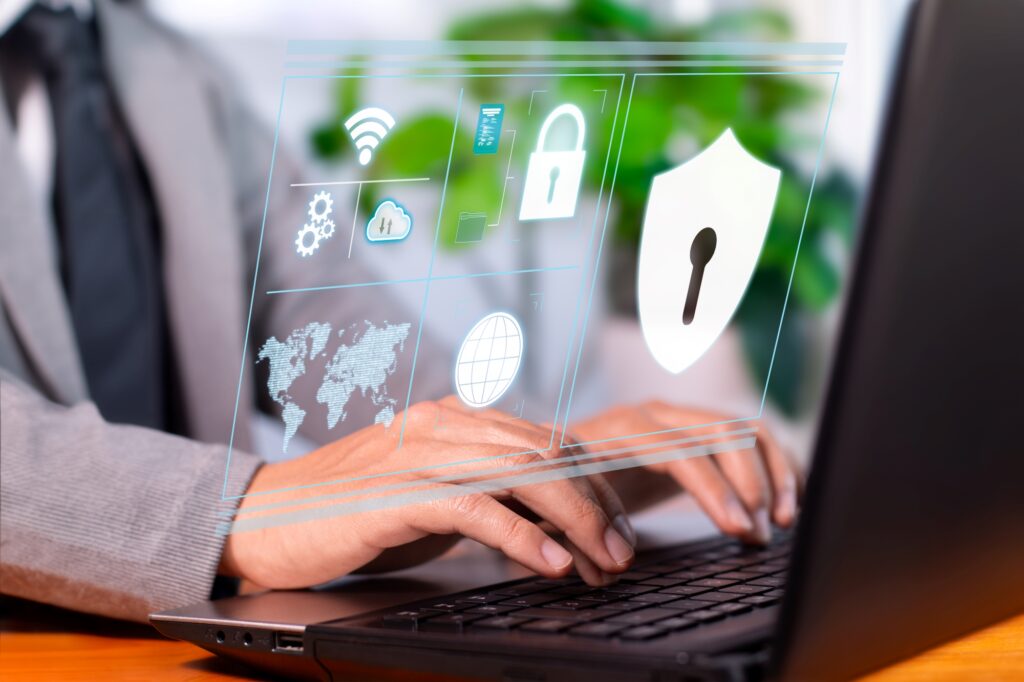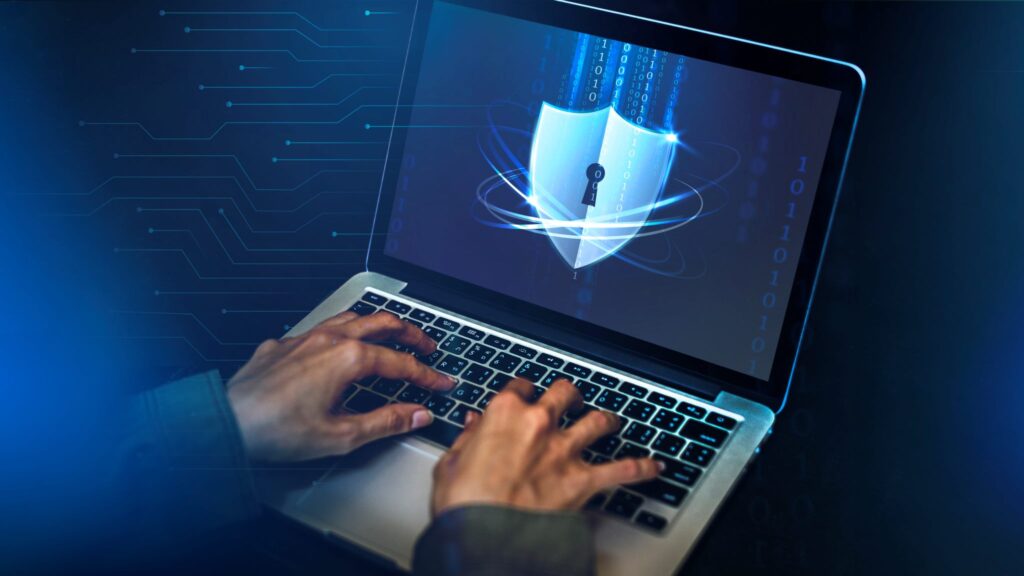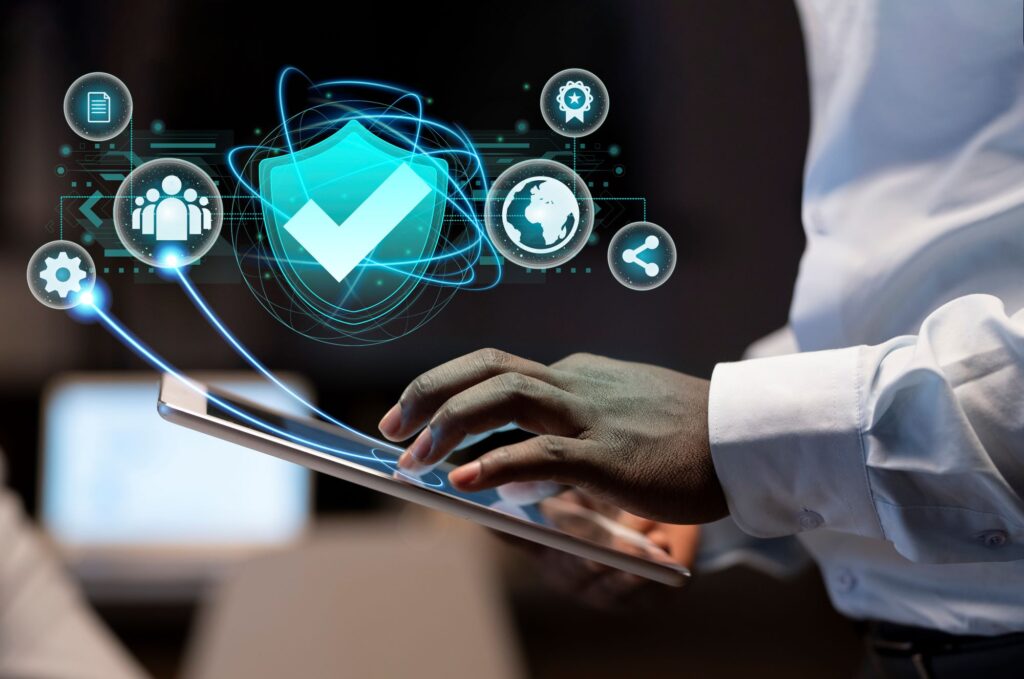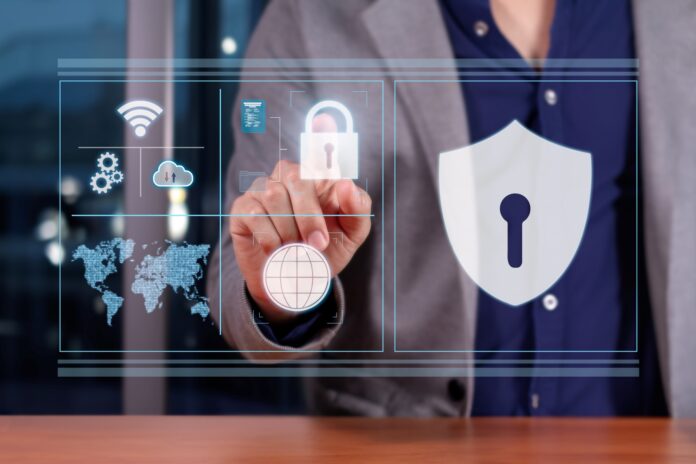Protecting yourself online is very important nowadays. Wondering how to keep your online activities safe? Well, through internet security.
Internet security acts as your virtual bodyguard, protecting everything you do on the web. From stopping hackers to defending against viruses and malware, it is here to keep you safe.
You will find some effective ways to protect yourself online. Here, in this blog, I will share the ways to protect yourself online. You’ll also find out about internet threats here. Let’s start by defining internet security.
What is internet security?
Internet security is about keeping your online activities safe from cyber threats. This covers protecting your networks, websites, and browsers. Actually, it serves as the bodyguard for you.
Internet security prevents hackers from accessing your systems or stealing your information. It also defends against viruses and malware that can mess up your data or harm your devices. So, internet security is a big part of cybersecurity, which is all about handling online risks.
You must steps to protect yourself online. Being careful about what you click on also matters a lot. These measures help fend off cyber threats, acting as a virtual bodyguard for you.

The most common Internet security threats
There are some internet security threats. If you are planning to protect yourself online, you must know about these threats. So, what are these internet security threats? Well, there are many of them, but here I will share the top threats.
So, let’s explore them together.
-
Malware and malvertising
Malware includes viruses, worms, and spyware, capable of damaging your computer or stealing your data. Moreover, malvertising presents another peril, concealing malware within online ads.
These hazards remain ever-prepared to strike upon clicking. So, you must employ good security measures.
-
Ransomware
Ransomware is another threat that you should know. This locks you out of your computer or files. It also demands payment for access restoration. Essentially, it operates as online blackmail, disrupting your day significantly. It helps mitigate the risks associated with ransomware attacks.
-
Botnets
Consider a group of computers that hackers control that is a botnet. These hijacked computers are used for sending spam or launching cyber attacks.
Botnets serve as a tool for cybercriminals to carry out their harmful activities remotely and at scale. Recognizing the danger posed by botnets is important.
-
Hacking and remote access
We know that hackers are always trying to hack your computer systems. They try to break to steal important info. And with remote access, they can do it from anywhere, making the threat even scarier.
-
Phishing
Phishing is when you get tricky emails that seem real, but they’re not. They try to fool you into giving away personal info or downloading bad stuff. It is a smart move by cybercriminals to sneak into your sensitive data without permission.
-
Wi-Fi threats, in public and at home
Using public Wi-Fi networks can be risky since they usually lack strong security. This makes it easier for hackers to steal your data and passwords. Even at home, there’s a worry about internet providers maybe selling your info, which raises privacy concerns.

How to protect your data online
Now, you must know the ways to protect your data online. Well, here I will share some ways to protect yourself online and they are easy to follow. So, let’s learn about the ways here:
-
Strong passwords
Making strong passwords is the first step to keeping your accounts safe from unauthorized access. Remember to make them tricky and different for each account. Mix up your password with capital and lowercase letters, numbers, and symbols.
Try a combination of letters and numbers both as passwords. And don’t forget to change them up every few months to keep ahead of any potential trouble.
-
Enable multi-factor authentication wherever you can
Make sure to turn on multi-factor authentication (MFA) whenever you can. Multi-factor authentication adds an extra layer of security to your accounts.
With MFA, you need more than just a password to log in. Instead, you might get a code sent to your phone or use your fingerprint or face to confirm it’s really you. So, your data stays safe.
-
Use a firewall
Ensure that your device’s firewall is enabled or install reliable firewall software. This protective barrier monitors incoming and outgoing internet traffic.
Firewall also saves your device from potential threats such as viruses or unauthorized access attempts by hackers. Keeping your firewall active is a prudent measure to maintain the security of your device.
-
Secure browser
To ensure the web is secure, use a trustworthy web browser equipped with advanced security features. Find browsers that keep you safe from phishing and malware. They should also keep web pages separate and update often to fix any security problems.
-
Updated software
Always update your operating system, software apps, and antivirus programs. We all know that hackers often target outdated software to sneak into your system or seize your personal info. Updating regularly not only fixes these weaknesses but also gives you better security features.
This means your device will always have the latest security patches. It also keeps you safe from threats and protects your data all day long.

End Note
In the end, it is important to stay safe online. Internet security works as a guardian for your data and information. Keep yourself safe from things like malware and hacking by using strong passwords and multi-factor authentication.
Remember to keep your software updated and use a firewall for extra security. Check links and public Wi-Fi before using them. Finally, you can easily protect yourself by following these shared ways here.
FAQ
How do I keep myself safe on the Internet?
Keep your devices updated, set strong passwords, and watch out for phishing scams. Keep personal info private, secure your internet connection, and shop from trusted sites. Always read privacy policies before sharing any details.
What measures can I take to ensure my internet security?
Here are some key steps to keep your internet security perfect. Use strong, unique passwords for your email. Make sure to update your software and apps regularly.
Turn on two-step verification for an extra layer of security. Consider using password managers to keep your passwords safe. And don’t forget to back up your data regularly to avoid losing it.
Why is safeguarding myself online important?
Keeping yourself safe online matters because there are always new tricks cybercriminals use to fool and harm people. Just as you’d protect your stuff in real life, it’s vital to safeguard your personal info online. Otherwise, you risk identity theft, losing money, or worse.
What steps can I take to stay safe and secure online?
Stay safe online by using strong passwords, keeping personal info private, securing devices, updating software, avoiding public Wi-Fi, enabling two-factor authentication, and backing up data. These steps help guard against hacking and identity theft, ensuring a secure online experience.
What’s the most effective method to safeguard yourself?
The best way to keep yourself safe is by staying alert to your surroundings, refraining from displaying valuables like your phone or money and making sure to plan your route before heading out. These simple steps can help reduce the chances of encountering risks while you’re out and about.

